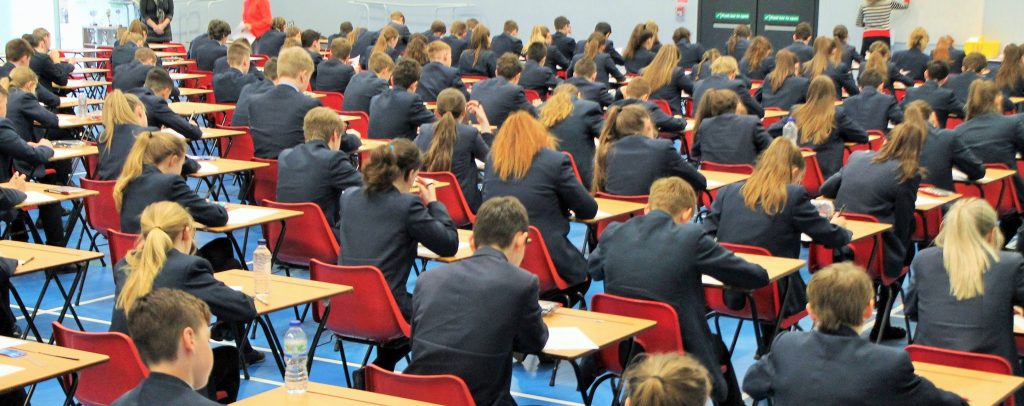“The communists have not invented the intervention of society in education; they do but seek to alter the character of that intervention and rescue education from the influence of the ruling class” Marx & Engels, Manifesto of the Communist Party
Communists have long understood the class nature of education. In the construction and maintenance of ruling class hegemony, education plays a key role. Indeed, in developed capitalist society, universal education (public or private) is the key mechanism for the reproduction and crystallisation of class differences, in spite of the resistance of many education workers.
Whether by open selection or a market system, schools are stratified to match the needs of the capitalist economy and ensure the reproduction of class.
In school, children and young people are not only provided with the necessary skills to equip them for their future role in capitalist society, but are also taught to think in the ‘right’ way. This takes place through the official curriculum (supposedly impartial and apolitical) and through the ‘hidden curriculum’ – those attitudes which are recognised and validated by the education system as a whole.
Education is one of the main ways in which the interests of the ruling class are represented as the general interests of society and ideology of the dominant class becomes the dominant ideology.
Our fight, as communists, is to reverse this situation, to create an education system which builds the hegemony of the ruling class. However, this would not simply be the same education system with a new class bias. As the goal of the working class is the abolition of class society in its entirety, we must develop a real education for liberation – education which seeks to challenge exploitation and oppression in all their forms.
For socialist revolution to be successful, the working class must build hegemony within capitalism, alongside direct political and economic struggle. These processes are indivisible and that means that revolutionary working class education is essential to building revolution.
Two questions arise immediately from this. The first is how we should develop revolutionary working class education within capitalism and the second is what this education should look like. Of course, the two questions are closely linked and the answer to the first is dependent on the second.
Firstly, we must recognise that this must not be a narrow education focused simply on the overthrow of capitalism. If we are to build revolutionary consciousness and working class hegemony, this will only come through a broad and critical understanding of the world as a whole.
Such a programme, as Gramsci argued, “tends to the creation of a new civilisation, of new attitudes of life and thought, of new feeling; it does so by promoting among the class of manual and intellectual workers, the spirit of enquiry”. This is not to deny the importance of political education but rather to emphasise the fact that this alone is not enough to develop what Freire called “critical consciousness”.
This leads us on to a second observation, which is that, if we truly want to empower independent critical thinkers, the process of education itself must work towards this goal. The bourgeois conception of education, in which every student is an empty vessel to be filled with knowledge by the teacher, must be abandoned in favour of a model which views the student as a subject in the process.
“The struggle begins with men’s recognition that they have been destroyed. Propaganda, management, manipulation – all arms of domination – cannot be the instruments of their rehumanisation. The only instrument is a humanising pedagogy in which the revolutionary leadership established a permanent relationship of dialogue with the oppressed… A revolutionary leadership must accordingly practice co-intentional education. Teachers and students (leadership and people), co-intent on reality, are both subjects, not only in the task of unveiling that reality, and thereby coming to know it critically, but in the task of recreating that knowledge” (Freire, Pedagogy of the Oppressed).
Finally, such an education must not, and cannot, be seen as a process separate from the development of society as a whole but must be seen as an integral part of that development. People are not just products of their circumstances but also the conscious force which interacts with, and changes, those circumstances. We work to change our natural and social environment and, in doing so, change ourselves. In this sense, education is a social process, mediated by our environment.
“The materialist doctrine concerning the changing of circumstance and upbringing forgets that circumstances are changed by man and it is essential to educate the educator himself. This doctrine must, therefore, divide society into two parts, one of which is superior to society. The coincidence of the changing circumstances and of human activity or self changing can be conceived and rationally understood only as revolutionary practice” (Marx, Third Thesis of Feuerbach).
This brings us finally to the question of how. From the argument above, it is obvious that we must take every opportunity in life and struggle to develop the model of education outlined. This means engaging in revolutionary education within the Communist Party and the broad movement but also taking the opportunities presented by the struggle within the educational apparatuses of the state to develop such revolutionary educational practice.



